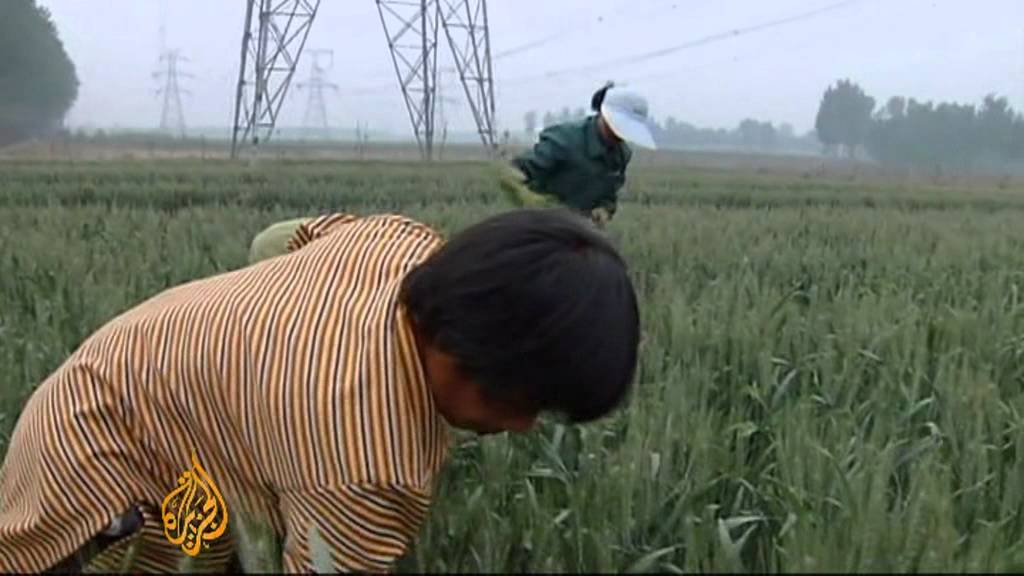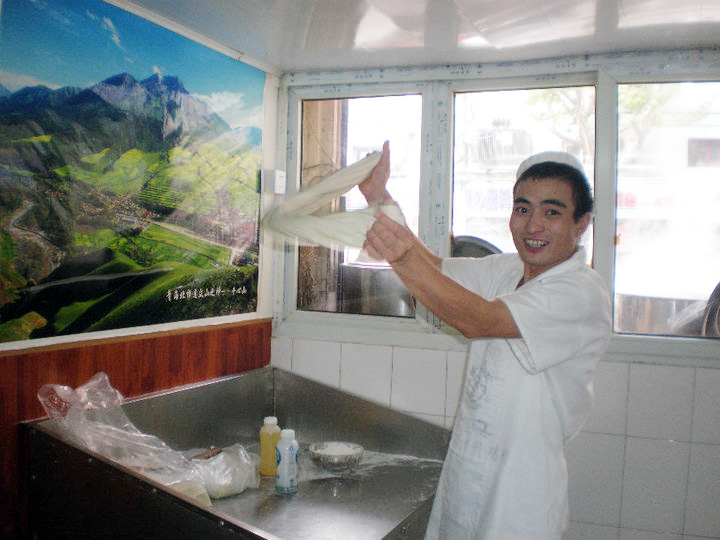
Ordering Beef and Getting Pork
So if there’s one GIANT systemic problem preventing China from becoming a fully industrialized first-world country, its the problems with food safety.
If you haven’t done so already, check out the Al-Jazeera report on fake beef.
Watched it? OK, good…Honestly, this report doesn’t surprise me too much. While the additive used in the video is of ambiguous legality, it typifies the problems with food safety (or general product safety) in China.
Pork is the meat of choice for most people in China. It’s cheaper than chicken and beef, plus it’s available everywhere. In fact, China has strategic pork reserves in much of the way that the United States has strategic oil reserves. So, using that stinky food additive is just another way to stretch a renminbi out of an ever-present product.
Eating Clean
My roommate Peter began to eat Lanzhou noodles not long after he moved to China a few years ago. He told me that after hearing of restaurants use dog meat (which is a different story) and other odd foodstuffs at noodle shops it was time to change. Since all the proprietors are Muslim the food undoubtedly halal. There’s no pork or weird stuff in it due to religious dogma.
The food is only a few RMB more than most street food and I know it won’t tear apart my insides like most street food will. Plus, I know that I won’t be eating pork masquerading as beef.

A Brief History of Food Scandals
Food scandals come in all stripes in Shanghai and China at-large. Oftentimes people want to squeeze every possible kuai from something they end up cutting corners. It’s why buildings collapse and electronics fall apart so easily. People would rather cut corners than pay to do it right.
I think food scandals get more attention because the corners cut have more obvious and immediate side effects.
– News of tainted milk most often makes headlines because children and infants are often too weak to combat the cheap fillers to stretch out production.
– Exploding watermelons in Jiangsu province made headlines just last month. Farmers were using a growth hormone that made the fruits grow quicker than they could support.
– In Shanghai, glowing pork was discovered in a warehouse full of steamed buns.
– Carrefour, a supermarket chain I frequent here in Shanghai, was caught relabeling production dates on packaged meat.
– Not even beer is safe. In Beijing, a company was caught filling bottles of Budweiser and Heineken with local Beijing beer.
The government has recently promised to step–up enforcement, but we will see how long it lasts. One CNN reporter recommends choosing the same foods that pests enjoy and to not eat the same food too often.
While these are just some of the problems here in China, I’m not worried too much. Much like the way I wasn’t too worried about North Korea while living in South Korea during some of the most tenuous times on the border.


http://ehomebrewrecipes.net
Home brew is relatively inexpensive to make versus many beers that are available. If you are trying to make a cheap version of Budweiser, then this is not the hobby for you. All-Grain brewing ingredients are able to be bought on a large scale which makes all of their ingredients cheaper, so the beer costs less.